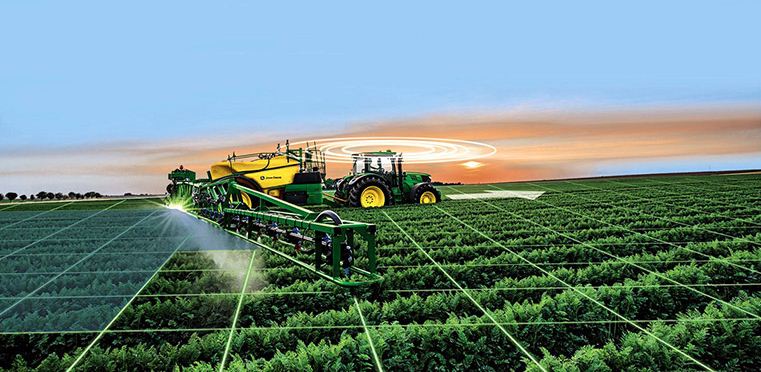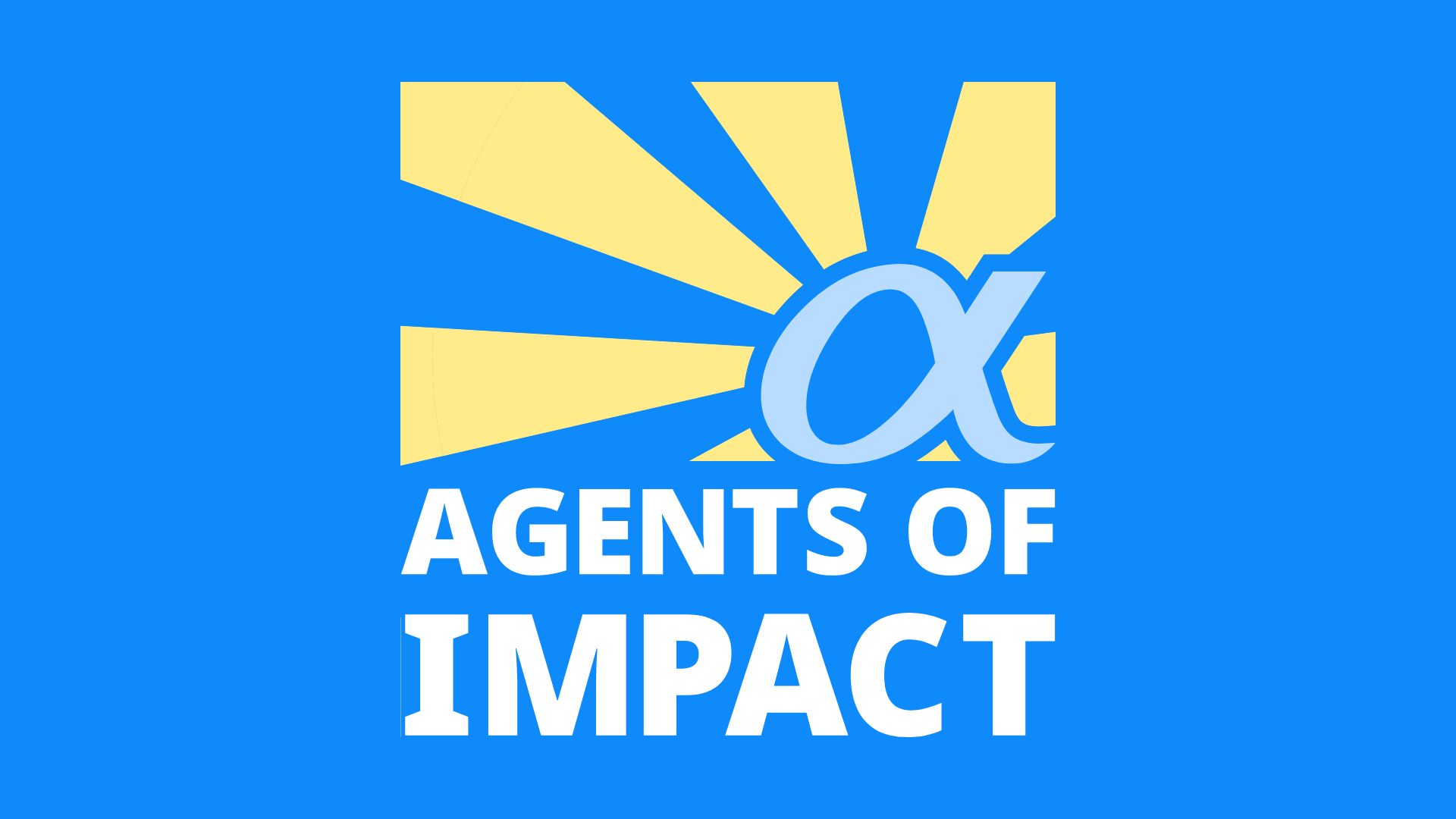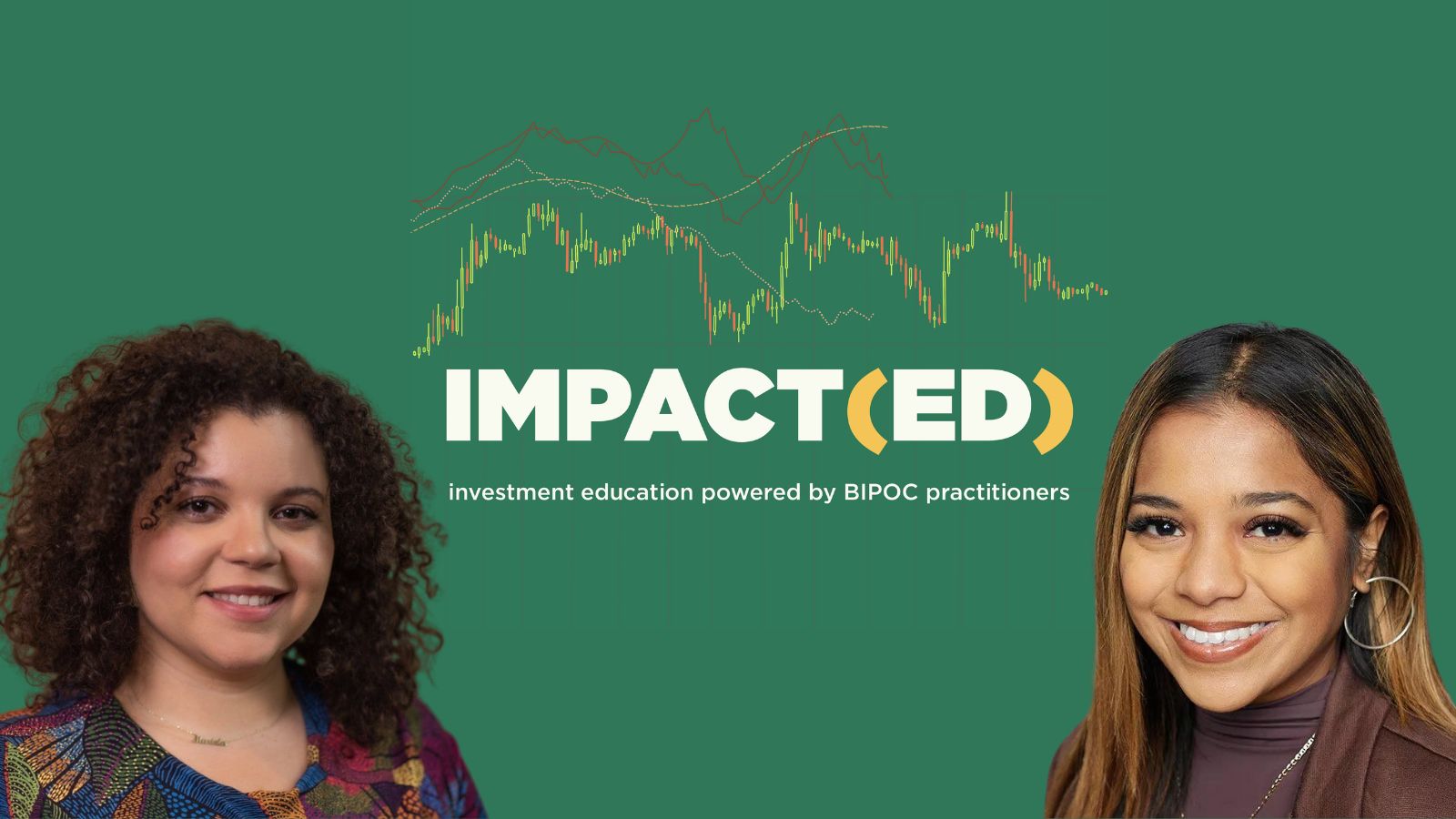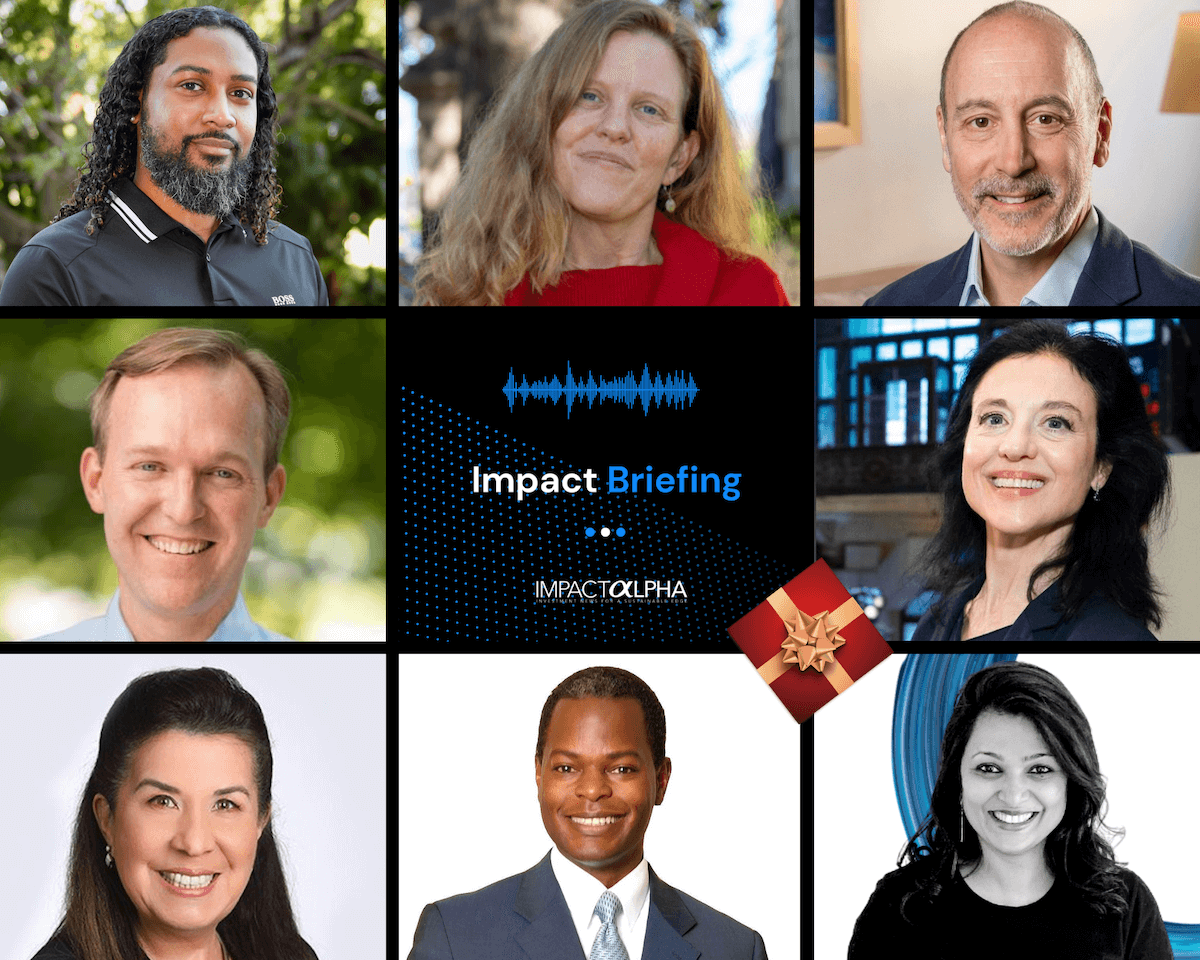ImpactAlpha, December 18, 2020 – As it’s fit and proper to take stock of last year’s predictions before venturing new ones, we looked back in our latest Institutional Shift podcast on our forecasts from last January, just before you-know-what changed everything.
The results: not bad. For example, Equilibrium Capital’s Dave Chen predicted that business-travel road warriors would become pariahs and that impact and environmental investors would think twice about flying around the planet to talk about saving it. Carbon footprint, rather than pandemic, would be the driver, Chen thought, but hey, “lucky” shots count, too.
We awarded Chen points as well for “consolidation and acquisitions,” with BlackRock’s billion-dollar acquisition of Aperio, along with Morgan Stanley’s $7 billion purchase of Eaton Vance. The prize for Morgan Stanley may have been Eaton Vance’s Parametric unit, which enables the creation of customized indexed accounts, as does Aperio, specifically focused on sustainability and ESG indicators. Such products have been among the hottest draws in finance this year.
Great Burp Forward
More points went for last year’s forecast that sustainability solutions would become increasingly core to corporate strategy. Last year, Chen cited John Deere & Co.’s R&D around precision agriculture, aimed at helping farmers – the primary customer’s for Deere’s equipment – adapt to changing conditions, especially climate.
Lo and behold, Morgan Stanley analysts recently raised their estimates for Deere based on “higher margins and valuation on a new replacement cycle for Ag equipment as well as new Precision Ag technology that is helping farmers make more profitable and sustainable decisions for the crop cycle” (h/t Jamie Martin).
“They called the business opportunity, the economic advantage for their customers, the farmers, in things like soil carbon, reduction of the use of herbicides, things like that,” Chen said. “We’re able to very, very practically talk about those without ever using “climate change, or buzzy terms, like “carbon sequestration.”
Corporations will talk more openly about climate and other issues, Chen says, partly because of the urgency and partly because of the new political climate. “We’re going to see in this next year that much of the stuff that has been hidden or not talked about very overtly is going to come out like one big massive burp,” he says.
Chen’s other calls for 2021:
Disruptive innovation
Moore’s Law type cost curves will disrupt a broader set of industries as tech-driven productivity increases take hold. Tesla, for example, thinks about electric vehicles as not just a new kind of drive train, but an entirely different platform and customer value-proposition, an iPhone with four wheels. As such new competition hits more industries, incumbents will scramble to catch up – fast.
“We’re seeing the full force of technology being applied in the sustainability area across multiple industrial sectors,” Chen said. Incumbents that have to respond are asking, “‘What is it that I can buy in $10 billion, $20 billion chunks? Because that’s what I’m going to have to do to turn the company. I don’t have 10 years to wait.’”
Original sin
Products like the iPhone and the digital transformation broadly are driving the “dematerialization” of much production. But there are still natural resources and physical requirements for many economic processes – the lithium needed for lithium-ion batteries being only the most popular current example. Palm oil, broadly reviled for replacement of rain forests with plantations, are nonetheless an efficient source of renewable biofuels.
“The original sin was the desecration of the environment,” Chen said. “So how do we now rationalize the fact that the original sin has been created, and make better, more productive, more sustainable use of some of these resources?”
Carbon Race
After lagging for years, carbon markets are heating up. Corporate “net-zero” pledges, along with rising expectations of meaningful policy action, are driving demand for carbon credits and, in turn, for carbon-smart restoration and conservation projects and green infrastructure.
“You’re going to see in 2021, a land grab, so to speak for carbon credits. You’re going to see major companies buying inventory positions, or forward positions of carbon,” contracting for an entire year’s worth of production for forestry, ag or infrastructure projects, Chen said. Demand will outstrip supply. “Money, representing demand, is going to outstrip the supply of carbon transition infrastructure projects. And the demand for positions and credits is going to drive the demand for projects as well.”
Game over in financial services
Sustainability products and strategies are no longer relegated to the fringes of such institutions, but are being integrated across all major platforms.
The signal: “When you walk into a virtual bar table conversation at a virtual conference, and you find the chief risk officer or the CIO of several of the sovereign wealth funds overtly talking about the role of the ‘S,’ as in social equality and social access and social mobility, not as an after-dinner conversation, but in conjunction with their obligation and duty, and the opportunity set for their portfolios,” Chen said.
“We started to see that this year. This was not the after-dinner conversation. This is now absolutely part of their portfolio conversation.”










